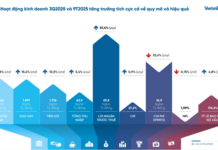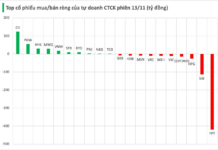As cashless transactions become increasingly prevalent, understanding personal income tax (PIT) regulations for funds received via bank accounts is crucial. Not all money transferred into your account is taxable, but it’s essential to be aware of specific scenarios to avoid legal risks and unexpected tax liabilities.
Tax authorities determine tax obligations based on the nature of the transaction—whether the funds qualify as taxable income—rather than solely on the amount flowing in and out of the account. Below are the types of funds transferred into a personal account that are subject to PIT:
1. Salaries, Wages, and Similar Income
This is the most common form of taxable income. When you receive salaries, bonuses, allowances, or any income akin to wages from an employer (company or organization), these amounts are subject to PIT under the progressive tax rate schedule. Employers are responsible for withholding tax before disbursing payments to employees.
However, if you earn income from two or more sources, you must self-settle taxes with the tax authority at year-end. All salary payments received via bank accounts are recorded and serve as a basis for tax authority verification.

2. Income from Business Activities
If you use a personal account to receive payments from business activities, online sales, or services (e.g., design, consulting, writing), this income is taxable. Specifically, you must pay PIT and value-added tax (VAT) if your annual business revenue exceeds 100 million VND.
Tax authorities may monitor accounts with large, frequent transactions to identify business activities and require full tax declaration and payment.
3. Income from Services and Commissions
Service fees such as brokerage fees, commissions, or fees from money transfer/withdrawal services are taxable income. While the principal amount in a “withdrawal on behalf” transaction is not taxed, the service fee you receive is subject to PIT.
4. Interest Income from Loans
If an individual lends money to an organization or company and receives interest, that interest is subject to PIT at a 5% tax rate. This tax is withheld by the borrower (company) before paying the interest to you.
Conversely, interest earned from loans between individuals is currently not subject to PIT.
5. Income from Real Estate Transfers (Fraudulent Declaration Cases)
In principle, when selling a house or land, the seller must pay a 2% PIT on the transfer price at the time of contract notarization. If the actual amount received via the bank account matches the declared price, no additional tax is levied.
However, significant risks arise when the seller and buyer deliberately declare a contract price much lower than the actual transaction value to evade taxes. If tax authorities detect this discrepancy through bank account transactions, they can reassess the sale price and collect the outstanding PIT along with late payment penalties.
9 Cases Where Money Deposited into Your Account Is Not Taxable
1. Personal and Family Transactions: Loans, gifts between relatives, friends, or spouses transferring living expenses to each other.
2. Tax-Paid Salaries: Post-tax salary amounts transferred by one spouse to another or to relatives.
3. Remittances: Funds sent by relatives from abroad.
4. Collection and Disbursement on Behalf: Money collected from customers and then remitted to the company/store owner (e.g., COD collections by shippers).
5. Money Transfer/Withdrawal Services: The principal amount in the transaction (tax applies only to service fees, if any).
6. Loan Repayments: Funds received to settle an existing loan and immediately transferred out.
7. Interest from Personal Loans: Interest earned from loans between individuals (e.g., rotating savings schemes).
8. Real Estate Sales (Tax Paid): Proceeds from selling property when taxes have been fully declared and paid on the actual transaction value.
9. Overseas Salaries: Income earned abroad, taxed there, and then transferred to a personal account in Vietnam.
To avoid unnecessary complications, individuals should:
– Maintain Transparency: Use separate accounts for business and personal expenses.
– Retain Documentation: Keep contracts, invoices, authorization letters, and other evidence to prove the origin and nature of received funds.
– Declare Honestly: Especially for large transactions like real estate, declaring the actual value helps prevent legal and financial risks later.
Dual Employment and Family Deduction Registration for Taxpayers: A Comprehensive Guide
The tax authority has clarified that individuals employed by both state agencies and private enterprises can only claim dependent tax deductions in one place, either at their government job or their private employer.
Mastering Tax Calculations for Individuals Earning 100 Million VND Monthly
The proposed amendment to the Personal Income Tax Law aims to restructure the progressive tax brackets, reducing them from seven to five tiers. The government’s plan, submitted to the National Assembly, seeks to broaden income thresholds, thereby simplifying the tax system and aligning it more effectively with current economic realities.
Revamping Personal Income Tax Law: Key Amendments Proposed by National Assembly Delegates
Numerous Members of Parliament have emphasized the necessity of amending the Personal Income Tax Law, offering specific recommendations such as: adjusting the family deduction threshold based on economic regions; carefully considering whether to retain or streamline the progressive tax brackets; and providing clearer regulations on taxes related to the transfer of gold bars and inherited real estate.
If Saved Assets Are Also Taxed, Then…
“Taxation on savings raises significant concerns, especially when considering the broader implications. While a 0.1% tax rate may seem negligible, it warrants careful scrutiny. As Representative Hoàng Văn Cường highlights, the cumulative effect of buying and selling incurs a 2.5% loss for individuals. Conversely, speculators who frequently trade land for profit only pay 2%, creating an evident disparity. This inequity demands attention and reevaluation.”










































